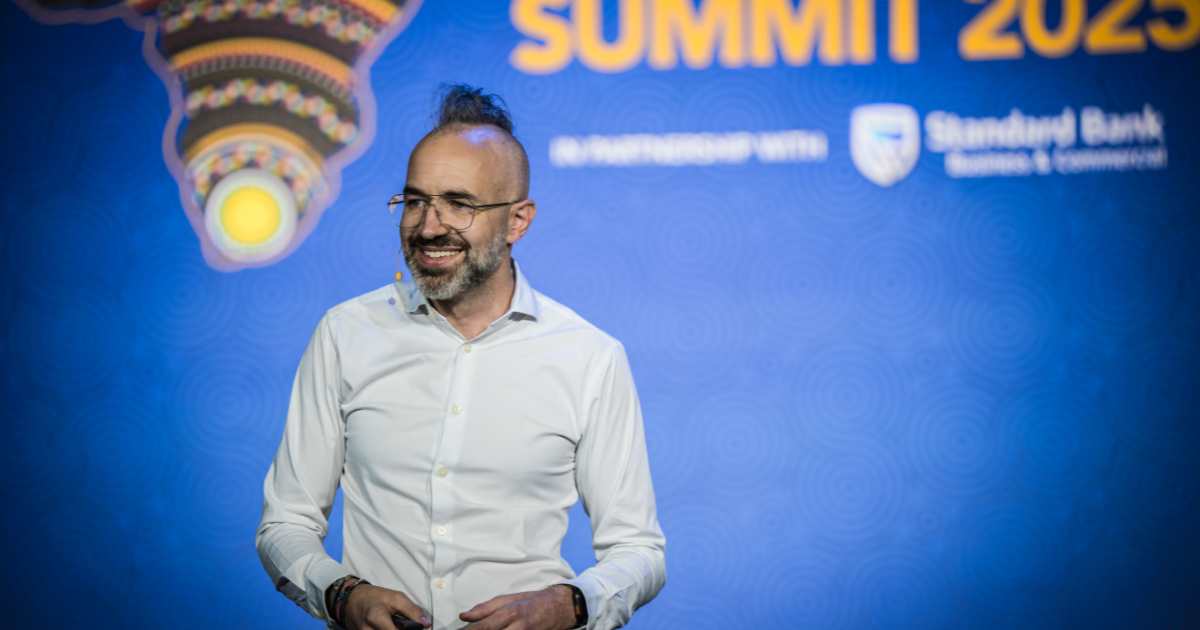
The South African Future Trust Summit exposed delegates to an assortment of impactful founders from various industries. One of these founders is Adam Pantanowitz, who co-founded AURA and other groundbreaking ventures.
Adam Pantanowitz spoke at the South African Future Trust Summit, and SME South Africa had the privilege of interviewing him. Adam views the entrepreneurial landscape through a unique lens, combining AI, entrepreneurship, academia, and innovation. In this article, we’ll find out more about what Adam had to say.
Entrepreneurs as Drivers of Societal Change
Pantanowitz is passionate about the role entrepreneurs play in driving social change. He emphasises how entrepreneurs bring solutions to social challenges.
“I’m massively inspired by early-stage entrepreneurship. I believe that the fabric of the economy is underpinned by entrepreneurs, and how society changes is largely through entrepreneurs’ efforts. So, when there’s a problem to be solved and if there is a solution that can yield results, like ultimately profits, it means that that solution is on its way. Entrepreneurs have the power to change the world through that mechanism,” says Adam.
There’s a massive emphasis in the entrepreneurial landscape on social entrepreneurs, and for good reason. The problems faced by society typically fall under the umbrella of the Sustainable Development Goals (SDG). These issues tend to be too large for the government to handle solely, so the pressure falls on entrepreneurs to create businesses that give back to their community.
The Confidence Gap in South Africa
Pantanowitz highlights that South Africans don’t have a capability issue; they have a confidence issue. Through belief, entrepreneurs in South Africa can be more audacious in innovating and driving change.
“South Africans have a lot of potential and a huge role to play in driving an innovation-led ecosystem. I think underpinning everything is the belief that we can make change. There’s no doubt in my mind that South Africans are incredibly resilient, creative, and innovative. We just don’t have the self-belief that’s required to make things happen,” he says.
Pantanowitz’s view doesn’t subtract from the fact that South Africans are achieving incredible things daily. “We need greater self-belief to showcase on a global scale that we significantly surpass expectations in every way. This means becoming more resourceful, more innovative, and adept at solving our local challenges. The well-known solution is for the government to step up and do much more to foster early-stage entrepreneurship, providing grants and greater access to the economy for these entrepreneurs.”
Pantanowitz also emphasised the need to decrease bureaucratic hurdles and liberalise the export of assets such as intellectual property, to enable us to compete internationally. “I acknowledge and appreciate the government’s efforts in this area, but we need greater commitment and faster progress,” he says.
Bridging Academia and Entrepreneurship
One of the most compelling themes Pantanowitz explored was the gap and opportunity between universities and the entrepreneurial world. While academia can be seen as slow, traditional, and risk-averse, he believes universities are actually positioned to be powerful innovation engines.
He explains that universities offer something entrepreneurs rarely have: a safe space to fail, and that bridging the academic-entrepreneurship divide is crucial.
“Academia and entrepreneurship are two distinct worlds,” he explains. “But the thing about universities is people are free to fail easily and quickly in a safe space. The stakes of failure are very low. When you fail, it’s okay, because you just move on to your next experiment. And that is an amazing environment to cultivate.”
Adam argues that instead of seeing academia as outdated, South Africa should unlock this hidden advantage by blending innovators, researchers and entrepreneurs through open entrepreneurship.
“What we have to do is open the doors to entrepreneurs and partner with innovators through a process called open entrepreneurship, where we get innovators and entrepreneurs to blend. Innovators can go on to do their next thing, but entrepreneurs can take the opportunity to market and make sure that the impact the innovator envisioned is actually realised.”
For Adam, the solution is not to make universities behave like startups, but to partner them with startups that can use data and ideas from universities.
The Role of AI in South Africa’s Innovation Landscape
With Pantanowitz’s deep background in AI, robotics, and applied sciences, the conversation naturally turned to AI adoption in South Africa.
“I don’t think anyone in the world yet knows what AI is capable of,” he notes. “But it’s essential that we get on the front foot with adoption and utilisation. We need to dispel the fears, and we need to make sure we understand the utility.”
For him, AI is not a threat, but merely an amplifier of human talent.
“We’ve built this amazing world around us as humans, and now we can augment those incredible human ingenuity skills that allow us to become a species of more, with greater reach, talent, time, freedom, and ability to create.”
Despite South Africa being one of the most tech-active societies in the world, with some of the highest statistics for daily mobile use worldwide, he believes we’re underutilising AI’s real potential.
“We are underutilising the opportunity that AI brings us, because tech is a great democratising force. It brings all the opportunities to everyone at the same time, and that’s something to leverage.”






